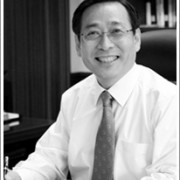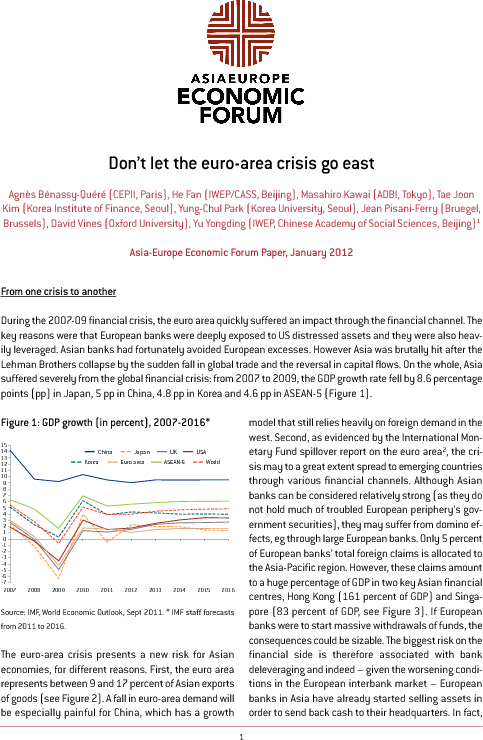External authors

Tae Joon Kim
External author
Tae-Joon Kim has been the sixth President of the Korea Institute of Finance (KIF) since March 2009. The KIF, which is funded by member domestic banks, is the preeminent financial research institute in Korea, covering the areas of financial institution management and strategy, financial industry structure and competitiveness, and the financial system. The KIF also conducts research on the foreign exchange market, capital transactions, and macroeconomic management and releases quarterly economic forecasts.
After earning his doctorate in international economics in 1988 from Columbia University, Dr. Kim worked at the Korea Institute of International Economic Policy (KIEP) from 1989 to 1993. In 1993, he became a professor in the International Management Department of Dongduk Women's University and served as vice president of the university from 2004 to 2006. In 2007, he was a member of the Public Enterprise Evaluation Group at the Ministry of Planning and Budget. Also in 2007, he served as a Standing Advisor to the Economic Subcommittee of the 17th Presidential Transition Committee. From 2008 to 2009, he was a non-governmental member to the National Economic Advisory Council under the President, and from 2008 to 2009, he was a member of the steering committee at the Korea Investment Corporation (KIC). In 2009, he was also active as a TF administrator for the Amendment to the Bank of Korea Act, while in 2010, he served as a member on the Evaluation Committee of the Financial Supervisory Service (FSS). He has been a member of the Fiscal Policy Advisory Committee at the Ministry of Strategy and Finance (MOSF) since 2008. He also has been active as a board member of the Korea International Economic Association (KIEA) in 2000, the Korean Economic Association (KEA) in 2002, and as the vice chairman of the Korea International Commerce Association in 2009.
